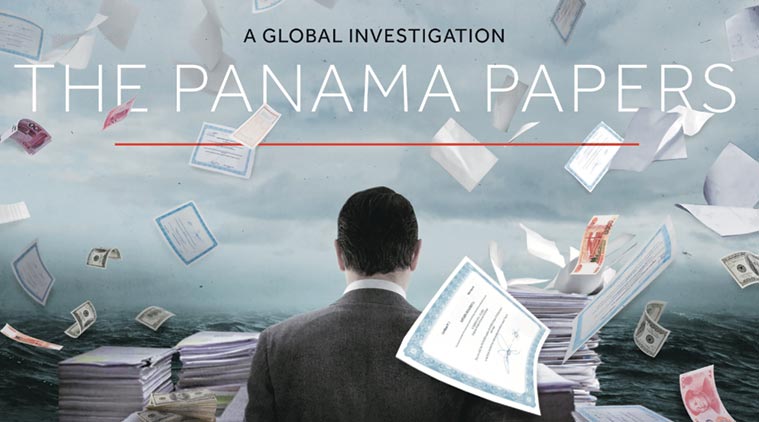- India
- International
In the season of Panama Papers, recalling birth of FEMA and PMLA
Although the RBI did some work on a potential new law, the move to review FERA was not pursued for a while, as the P V Narasimha Rao-led government went out of office in 1996.
 Photo for representational purpose
Photo for representational purpose
Two years after having first struggled to cope with the balance of payments crisis in 1991-92 — foreign exchange reserves had plunged below $ 1 billion in April 1991 — policymakers in India were discussing a new challenge. By the second half of 1993, foreign exchange inflows were relatively high, buoyed by the opening up of the economy and due to foreign investment in many sectors — as also by foreign funds buying the stocks of Indian firms. And as foreign exchange reserves topped $ 13 billion by February 1994, the government and Reserve Bank, after talks, decided on easing rules to allow Indians to spend more on overseas travel, education and other expenses. Under discussion also was a move to lift trade restrictions on firms — or, in other words, to make the rupee convertible on the current account, which dealt with these transactions.
Finance Minister Manmohan Singh announced in the 1994-95 Budget that the rupee was being made convertible on the current account. In the run-up to that, Singh and his former deputy at the RBI, C Rangarajan, had discussed the move — and also the need to ease the path for Indian firms and individuals who had faced severe restrictions on the use of foreign exchange for decades, given the country’s limited reserves. The fact that the economy recovered — and the balance of payments position improved — faster than what the Finance Minister and his colleagues had expected, appears to have prompted a stocktaking exercise by the central bank, and an announcement by Singh in February 1994 of the government’s intention to review what was then known as the Foreign Exchange Regulation Act or FERA, and to carry out necessary changes, including its replacement by a new law. FERA was designed for an era in India marked by a shortage of foreign exchange; it was aimed at conserving forex to ensure it was utilised only in the interest of the development of the country, as the preamble of the law stated.
Although the RBI did some work on a potential new law, the move to review FERA was not pursued for a while, as the P V Narasimha Rao-led government went out of office in 1996. But in 1997-98, with P Chidambaram — who was also part of Rao’s reform team — at the helm, the Finance Ministry decided to go ahead with some of the unfinished agenda of liberalisation, including a new law to replace FERA.
The decision was announced, and Rangarajan asked Y V Reddy, who had joined the RBI after quitting the civil service, to work on it. The new law was called the Foreign Exchange Management Act or FEMA — reflecting the changed economic realities, and to boost external trade and payments and promote the development of the foreign exchange market in India.
Reflecting the major change in mindset was the decision to make offences or violations under this law a civil (rather than criminal) offence, and making transactions that are part of the current account, such as travelling abroad for tourism, education, etc., a matter of right — while putting in place restrictions on the capital account.

However, agencies that dealt with violations and administration of FERA — led by the Enforcement Directorate — were reluctant to give up their powers, and sounded warnings about how the removal of the threat of criminal action would encourage companies and individuals to misuse the law. But Chidambaram overruled these objections, and decided to go ahead with the concept of monetary penalties, or compounding of fines.
As work progressed on drafting FEMA, the government had to also agree to another law, which would equip state agencies with powers of criminal action — a legislation on money laundering. But the United Front government fell in 1998, leaving Atal Bihari Vajpayee’s National Democratic Alliance government to follow up on the start.
However, new Finance Minister Yashwant Sinha and the RBI had not perhaps reckoned fully with the agencies that had administered the law for years. Their concern was handling the many cases of violations under the old law that had not been adjudicated — and the way things would change once the new law kicked in. Finally, it was decided that there would be a two-year sunset clause for cases under FERA — which, going by accounts of officers, prompted a flurry of notices just before the deadline, including one against a top Indian hotel chain for its acquisition of a hotel abroad, to keep the cases alive!
Interestingly, the regulations — which provide the legal framework for current account transactions — too were notified only in mid-2000. During that period, the RBI also pitched for a separate law governing foreign direct investment (FDI), but the government did not agree.
When Sinha went to Parliament with the two new laws, FEMA didn’t pose much of a problem; but with the Money Laundering Bill, the government found the going tough. Parties across the political spectrum opposed what they said were draconian provisions — Mulayam Singh Yadav warned that governments could not be trusted with not misusing it, and the Congress backed the demand to refer the Bill to a Select Committee of Parliament. The panel recommended many changes — to which Sinha, constrained by the need to carry members along, agreed. The Money Laundering Bill was finally passed in 2002.
It is FEMA and, in some cases, the Prevention of Money Laundering Act, that will now come into play if the multi-agency team that will probe The Panama Papers, and the SIT on black money, prima facie find any violations.
More Explained
EXPRESS OPINION
Apr 19: Latest News
- 01
- 02
- 03
- 04
- 05








































